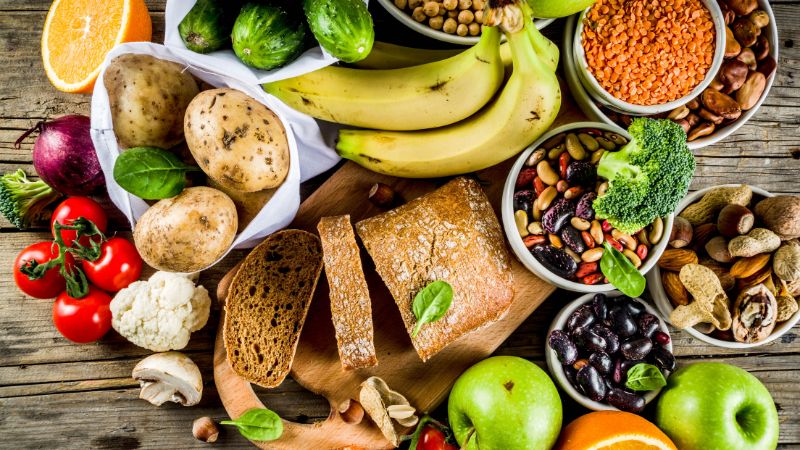When it comes to maintaining a healthy diet, ensuring an adequate intake of fiber is crucial. Fiber not only aids in digestion but also helps regulate blood sugar levels, promotes a feeling of fullness, and supports heart health. While grains and legumes are often touted as fiber-rich foods, vegetables are equally important sources of this essential nutrient. Here are seven high-fiber vegetables that you should consider adding to your diet:
1. Artichokes

Artichokes are not only delicious but also packed with fiber, making them an excellent addition to any diet. A medium-sized artichoke contains around 6.9 grams of fiber, which is over a quarter of the recommended daily intake for adults. Fiber in artichokes is primarily found in the leaves and stems, so be sure to consume them in their entirety for maximum benefits. Whether steamed, grilled, or added to salads, artichokes are a versatile vegetable that can easily elevate any dish.
2. Broccoli
Broccoli is a nutritional powerhouse, loaded with vitamins, minerals, and fiber. One cup of cooked broccoli provides approximately 5.1 grams of fiber, making it an excellent choice for boosting your daily intake. Additionally, broccoli is rich in antioxidants and phytonutrients that offer numerous health benefits, including reducing inflammation and supporting immune function. Whether served as a side dish, added to stir-fries, or blended into soups, broccoli is a versatile vegetable that can be incorporated into various meals.
3. Brussels Sprouts
Despite their small size, Brussels sprouts are packed with fiber, vitamins, and minerals. Just half a cup of cooked Brussels sprouts contains around 2 grams of fiber, along with ample amounts of vitamin K, vitamin C, and folate. These cruciferous vegetables also boast anti-inflammatory properties and may help reduce the risk of certain chronic diseases. To enjoy Brussels sprouts, try roasting them with olive oil and garlic or adding them to salads for a nutritious boost.
4. Spinach

Spinach is not only a rich source of iron but also an excellent source of fiber. One cup of cooked spinach provides approximately 4.3 grams of fiber, along with a host of other essential nutrients like vitamin A, vitamin C, and magnesium. Incorporating spinach into your diet can help support healthy digestion, promote satiety, and contribute to overall well-being. Whether used in salads, omelets, or smoothies, spinach adds a nutritional punch to any meal.
5. Sweet Potatoes
Sweet potatoes are not only delicious but also incredibly nutritious, boasting high levels of fiber, vitamins, and antioxidants. A medium-sized sweet potato with the skin on contains around 4 grams of fiber, making it an excellent choice for promoting digestive health. Additionally, sweet potatoes are rich in beta-carotene, which is converted into vitamin A in the body and plays a crucial role in vision health and immune function. Whether baked, mashed, or roasted, sweet potatoes are a versatile vegetable that can be enjoyed in various dishes.
6. Peas
Peas are a humble yet nutritious vegetable that packs a significant fiber punch. One cup of cooked peas provides approximately 8.8 grams of fiber, making them one of the highest fiber vegetables available. Peas are also rich in protein, vitamins, and minerals, making them a valuable addition to any diet. Whether added to soups, stews, or salads, peas are a versatile ingredient that can enhance both the flavor and nutritional content of your meals.
7. Carrots

Carrots are not only crunchy and flavorful but also an excellent source of fiber and nutrients. One cup of chopped carrots contains around 3.6 grams of fiber, along with ample amounts of vitamin A, vitamin K, and potassium. The fiber in carrots helps promote digestive health and may aid in weight management by promoting a feeling of fullness. Whether eaten raw as a snack, roasted as a side dish, or blended into soups and smoothies, carrots are a versatile vegetable that can be enjoyed in numerous ways.
Incorporating these high-fiber vegetables into your diet can help you meet your daily fiber needs while reaping a host of health benefits. Whether you prefer them steamed, roasted, or raw, adding more vegetables to your meals is a simple yet effective way to support overall health and well-being. So why not start incorporating these nutrient-rich vegetables into your meals today? Your body will thank you for it!






